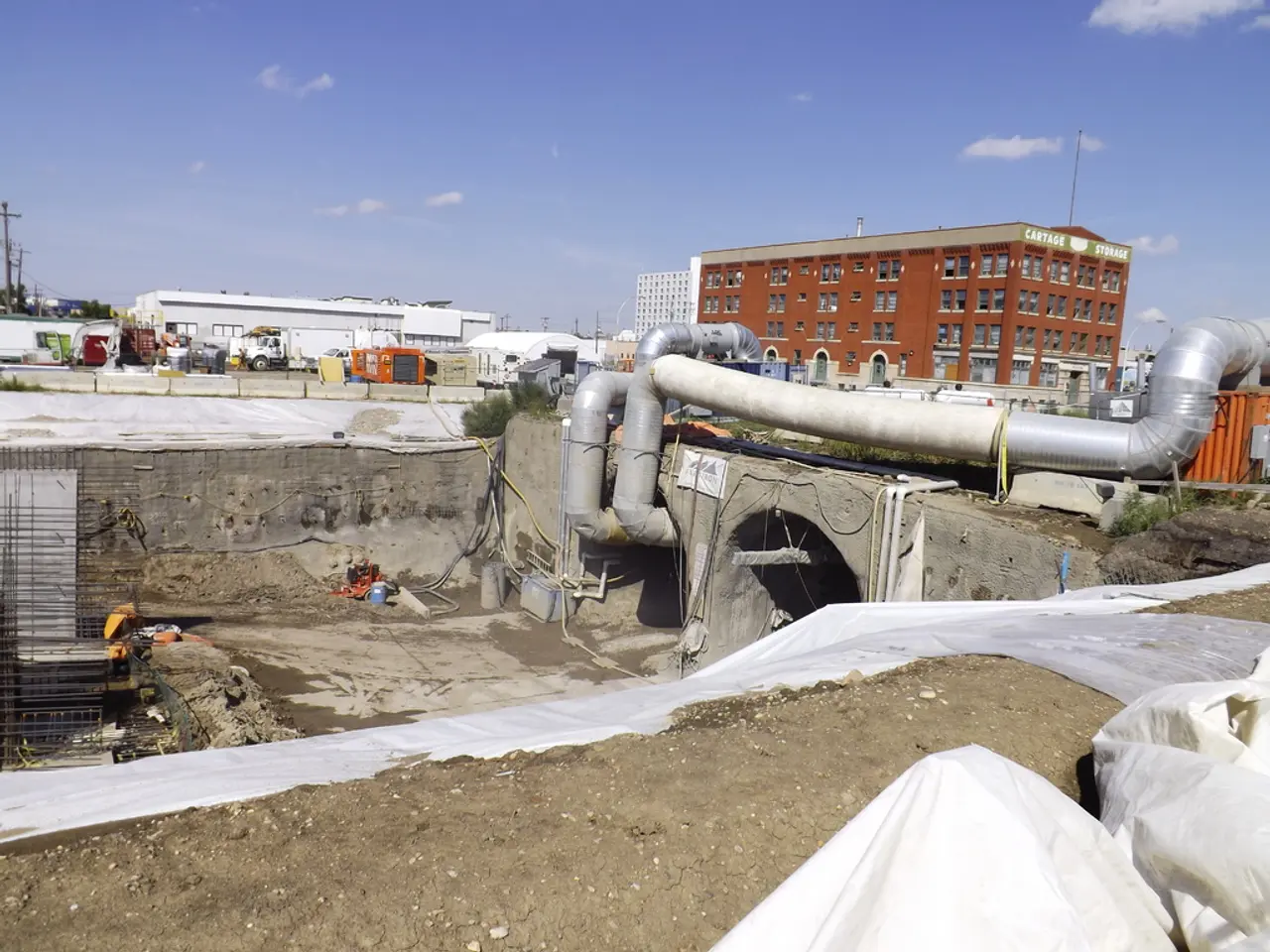streamline, not execute: Insights from the Abrego Garcia Case regarding the Supreme Court and the current state of US governance
The Trump administration's actions have raised concerns that its policies are a threat to the foundational liberties of the American republic. The administration's approach to immigration and deportation matters has been a subject of ongoing legal challenges, with accusations of disregarding or violating court mandates.
One notable case is the deportation of Kilmar Armando Abrego Garcia, who was sent back to an El Salvador prison on March 15, 2025, despite being barred from deportation by an immigration judge due to concerns for his security. On April 10, 2025, the Supreme Court unanimously upheld a part of a district court order requiring the federal government to "facilitate" Abrego Garcia's return to America, but the Trump administration has yet to take decisive action.
This inaction is reminiscent of the Supreme Court's indecisive language in the Abrego Garcia case, which some argue is a repeat of a similar error the Court made in the landmark case Brown v. Board of Ed. I (1954). In this case, the Court allowed Southern states discretion when implementing plans to end segregation in schools, which allowed them to ignore the Court and continue segregation.
The Supreme Court is being criticized for not taking decisive action to enforce its order regarding Abrego Garcia's return. Some argue that overtly challenging the Trump administration could risk the Court's legitimacy, but the risk of inaction is greater for the foundational liberties of the American republic.
This pattern of legal challenges and accusations of disregarding or violating court mandates is not limited to the Abrego Garcia case. For instance, the Trump administration was found to have breached a settlement agreement stemming from a family separation lawsuit by abruptly terminating a contract that guaranteed legal services to affected children. The administration was also accused of defying district court orders on deportations and legal battles over executive orders and injunctions.
The Trump administration's confrontation with the judicial branch dates back to Donald Trump's inauguration. The administration's evasion of court orders, such as the case of Abrego Garcia, threatens the authority of the judicial branch and could erode the checks and balances that underpin the American republic.
The Supreme Court must learn from the lessons of history, particularly from Brown v. Board of Ed. II (1955), to fulfill its counter-majoritarian purpose and hold the Trump administration accountable. The Court's indecisive language in the Abrego Garcia case is problematic and may lead to a repeat of the errors made in the Brown v. Board of Ed. I (1954) case.
In conclusion, the Trump administration's actions in disregarding court orders, particularly in the case of Kilmar Armando Abrego Garcia, raise serious concerns over the administration's respect for the rule of law and the foundational liberties of the American republic. The Supreme Court must take decisive action to uphold its orders and maintain the balance of power that underpins the American system of government.
[1] Source: https://www.aclu.org/news/immigrants-rights/aclu-files-emergency-motion-to-enforce-family-separation-settlement-agreement/ [2] Source: https://www.washingtonpost.com/politics/2019/07/11/supreme-court-clears-way-trump-administration-to-deport-immigrants-without-following-proper-procedures/ [3] Source: https://www.nytimes.com/2020/06/23/us/politics/trump-immigration-family-separation-settlement.html [4] Source: https://www.washingtonpost.com/politics/2020/06/29/supreme-court-to-hear-cases-challenging-trump-administrations-immigration-policies/
- The alumni of the American republic, observing the Trump administration's actions, have expressed strong opinions that its policies pose a threat to the foundational liberties of the nation.
- The news of the Trump administration's breach of a settlement agreement stemming from a family separation lawsuit has sparked general-news debates, with concerns over the administration's disregard for court mandates.
- The events surrounding the Trump administration's actions, particularly the case of Kilmar Armando Abrego Garcia, have brought politics into sharp focus, with calls for the Supreme Court to take decisive action to enforce its orders.
- The policy-and-legislation involving the Trump administration's approach to immigration and deportation matters has been a subject of ongoing legal challenges, similar to the war-and-conflicts waged in the courtrooms against executive orders and injunctions.
- The crime-and-justice implications of the Trump administration's actions, such as the abrupt termination of legal services to affected children, are raising serious questions about the administration's respect for the rule of law and the foundational liberties of the American republic.








